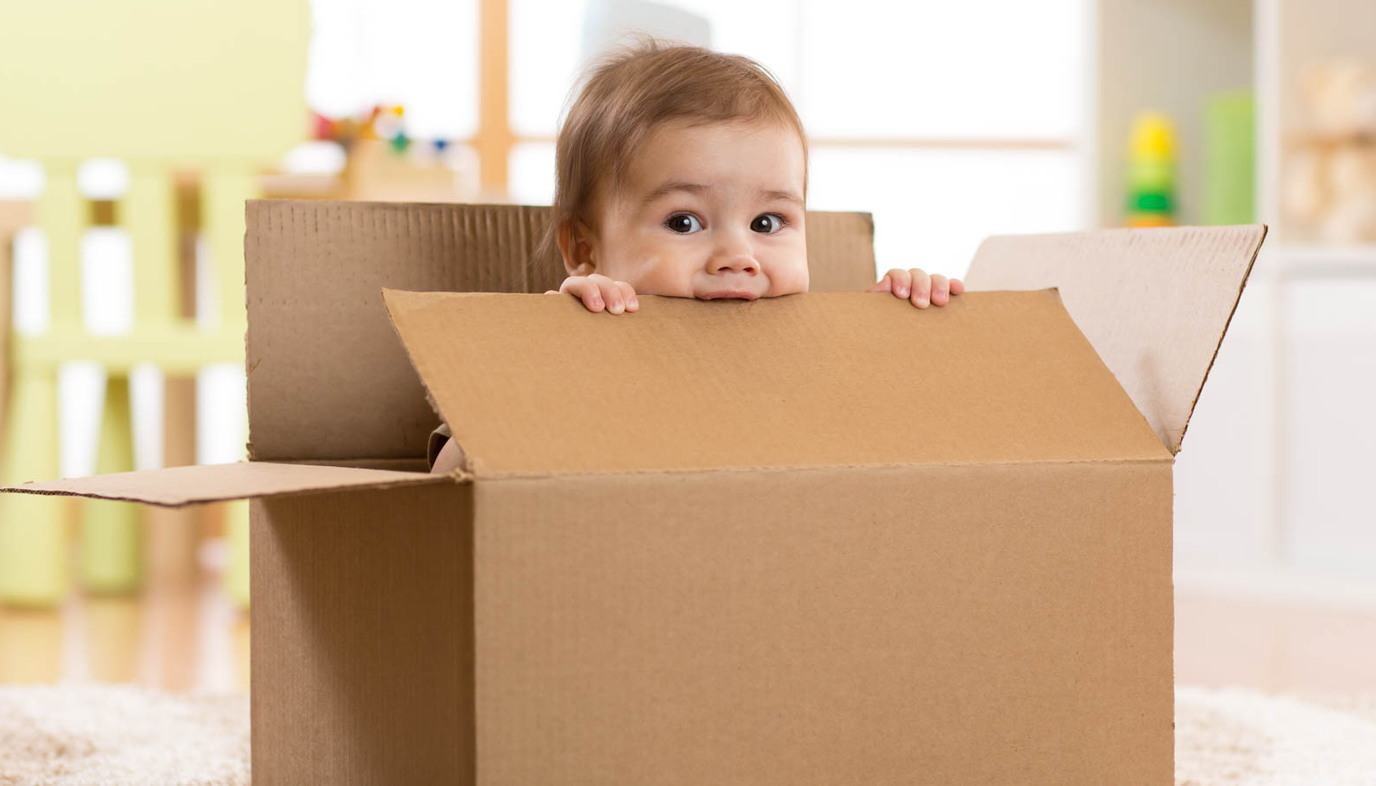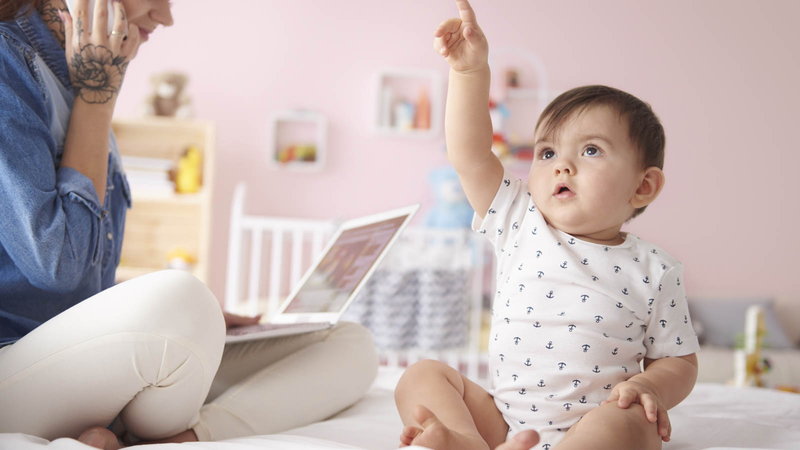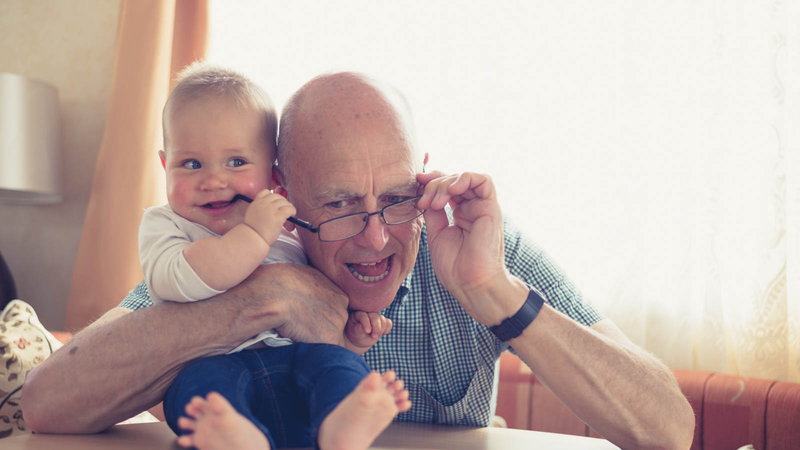
At eight months, the average baby weighs around 18-19 lbs and is about 27-27 ½ inches long. Some babies grow at a faster pace than others, so don't worry if your baby is bigger or smaller than this. As long as he is gaining weight and growing, there is usually nothing to be concerned about.
Your baby is becoming more independent. Your baby's personality is starting to really show. You may notice him showing his temper, being picky about what toys he want to play with, or wanting to be held less. It's also not unusual for babies to lose interest in breastfeeding around this time. This does not, however, mean that your baby is ready to wean. Babies at this age may go on a "nursing strike." Nursing strikes happen when baby temporarily refuses the breast. They usually only last a few days, but can be frustrating for mom and baby. If your baby goes on a nursing strike, you may need to pump or hand express to make sure it does not affect your milk supply. You should also make sure that baby is feeling okay. Teething and illnesses are often the cause of a nursing strike. Offer the breast frequently, get a lot of skin to skin contact with baby, and try different nursing positions. Be patient and remember this is temporary.

Your baby is starting to be a pro at eating solids. At 8 months, your baby will likely be taking stage 2 baby food if he is eating jarred baby food. He may be ready for stage 3 baby food now. If you make your own baby food, your baby may be able to take food that has chunks in it or even take some solid foods without being pureed at all. You can expect your baby to eat around ¼ to ½ cup of cereal a day, 1/4-1/2 cup of fruits per day, 1/4-1/2 cup of veggies per day, and 1-2 tablespoons of meat each day.
Your baby's personality is developing and you may notice him choosing one toy to play with over another. Try to offer your baby different choices for toys. It's quite alright for your little boy to play with a baby doll or your little girl to play with a truck. Play time is important for babies, and giving them lots of options is a great way to allow them to explore.
Your baby has reached a lot of developmental milestones. He should be sitting up by himself now. If he is still not able to sit without support, you may want to discuss this with your doctor. You can use a boppy pillow to support his body while he practices sitting. He should be able to roll over in both directions now and he may even be crawling now. Most babies start to crawl sometime between 7 and 10 months. Give him plenty of tummy time and time on the floor to play. This will help him to get stronger and to develop his crawling skills.
By the End of the Eighth Month Your Baby Can:
- Clap hands together or wave bye bye
- Say "mama" or "dada"
- Check himself out in the mirror
- Cry or scream for attention
- Stand briefly if leaning against the couch or furniture
- Grab small objects with his thumb and forefinger
- Track an object that you point to with his eyes
- Point with his finger
Your Baby Likes:
- To bang objects together
- To listen to his favorite songs
- To play baby games like "So Big" or "Peek-a-boo"
- To pick up food and other items off the floor
- To cuddle with mom or dad
Safety Tips:
- Make sure there is a safety mat in your tub for bath time.
- Keep any plastic bags stored away from baby.
- Make sure dangerous items like irons or curling irons are put away when not in use.
- Use a safety gate on stairwells. Babies figure out how to get up the stairs when you least expect it.
- If you use a playpen, make sure that it automatically locks at the top and that the mesh openings are no bigger than ¼ inch wide.
Activities for Your Baby:
- Box play. Get a large cardboard box and let your baby crawl inside. Or, get a few boxes and make a fort for him to play in.
- Play a game of "So Big." Ask your baby, "How big is baby?" Then stretch his arms up high and say, "So big!"
- Dump it out and fill it up! Grab a plastic container and some small blocks or toys. Have your baby fill up the container and then dump it out.

